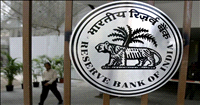UN report pegs global economic growth at 2.1% in 2013
15 Oct 2013
Even after five years of the onset of the global financial crisis, the world is still struggling and countries must adopt new economic policies to adjust to structural changes in the economy, a new report released yesterday by the UN Conference on Trade and Development (UNCTAD) urged.
 Presenting a gloomy picture of the world economy, the report said that economic growth was 2.2 per cent in 2012, and is likely to remain stagnant at around 2.1 per cent this year. In 2010, the global economy expanded 4.1 per cent.
Presenting a gloomy picture of the world economy, the report said that economic growth was 2.2 per cent in 2012, and is likely to remain stagnant at around 2.1 per cent this year. In 2010, the global economy expanded 4.1 per cent.
The UN's forecast is more pessimistic compared to last week's growth projections by the International Monetary Fund (IMF) which predicted the global growth to be around 2.9 per cent in 2013 followed by a 3.6-per cent expansion next year.
Stimulus measures adopted by developed economies to contain the downturn and propel economic growth have been unsuccessful, has they have been combined with fiscal austerity and subdued private demands, the UN said.
It urges that governments must address the fundamental causes of the crisis, in particular rising income inequality, the diminishing role of the states, and the poorly regulated financial sector.
Although developing countries have been able to mitigate the adverse impact of the crisis to some extent, they are not on a sustainable path. Economies that heavily depend on exports must reconsider their development strategies and rely more on domestic and regional demand, the report said.
''We are trying to understand this crisis in the long-run, and if it is a structural crisis, as we have seen, then this would mean a lot in terms of shifting economic policies,'' said Alfredo Calcagno, head, macroeconomic and development branch, UNCTAD.
''One of the main changes in our view is that developing countries must concentrate on fostering their domestic trade in order to continue to grow. This does not mean that exports are no longer important, but they need to strengthen their domestic markets to adapt to new demand conditions,'' he further stated.
While in Europe, economic growth is restricted due to increased tendency towards fiscal austerity, in the US, cuts in public spending is having a ''contractionary'' effect.
On the contrary, the Japanese government has resorted to strong fiscal stimulus and monetary expansion aimed at reviving economic growth, the report observed.
Global trade expansion is stagnant with its volume increasing less than 2 per cent in 2012 and the first months of 2013.
''This general downward trend in international trade highlights the vulnerabilities developing countries continue to face at a time of lacklustre growth in developed countries,'' the report said.
For the world economy as a whole, coordinated, demand-driven policies, with no country adopting austerity policies, would deliver better results in terms of growth, income distribution, employment, and global re-balancing than current policies that place the entire burden of adjustment on deficit countries, the report stressed.













.jpg)






.jpg)









